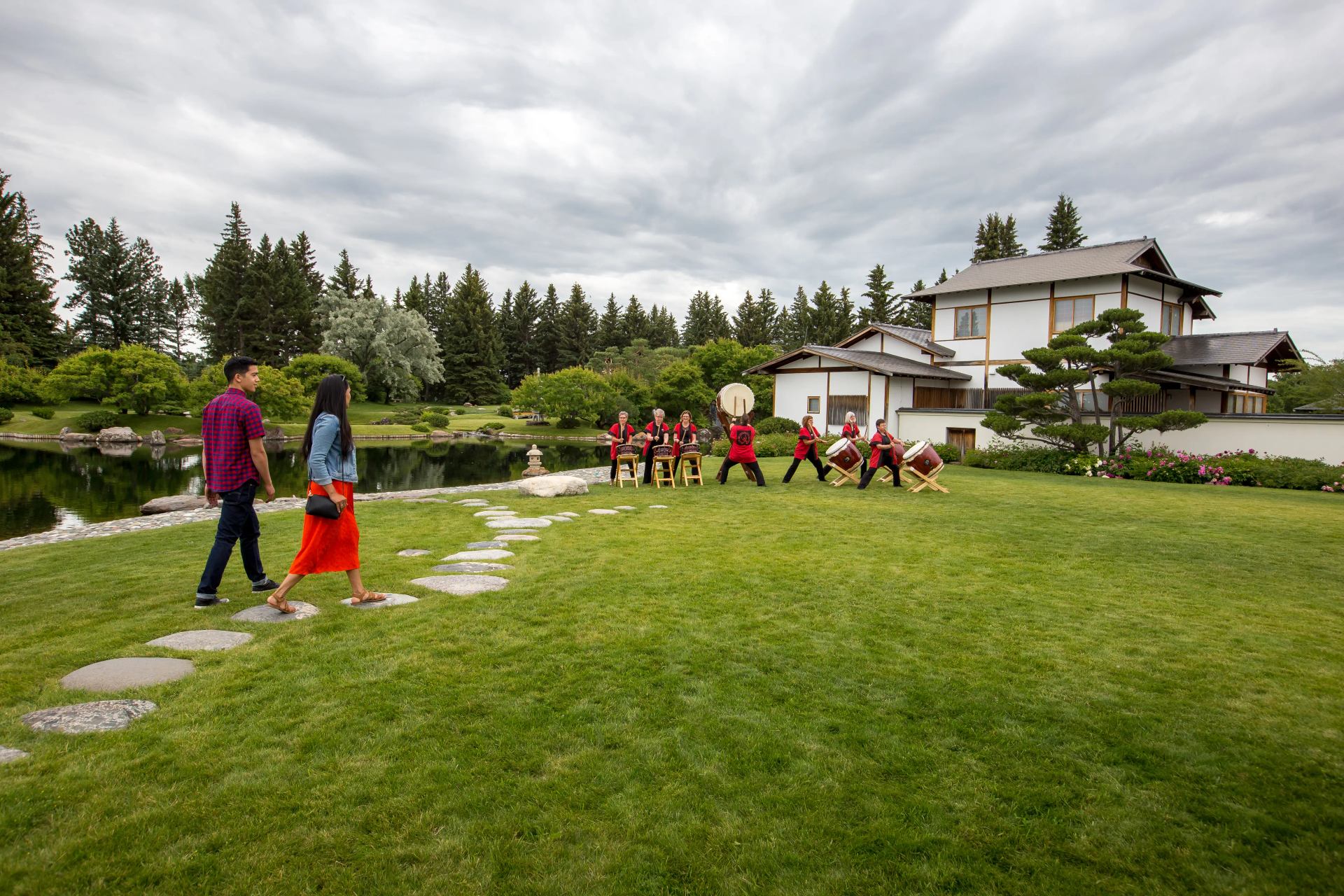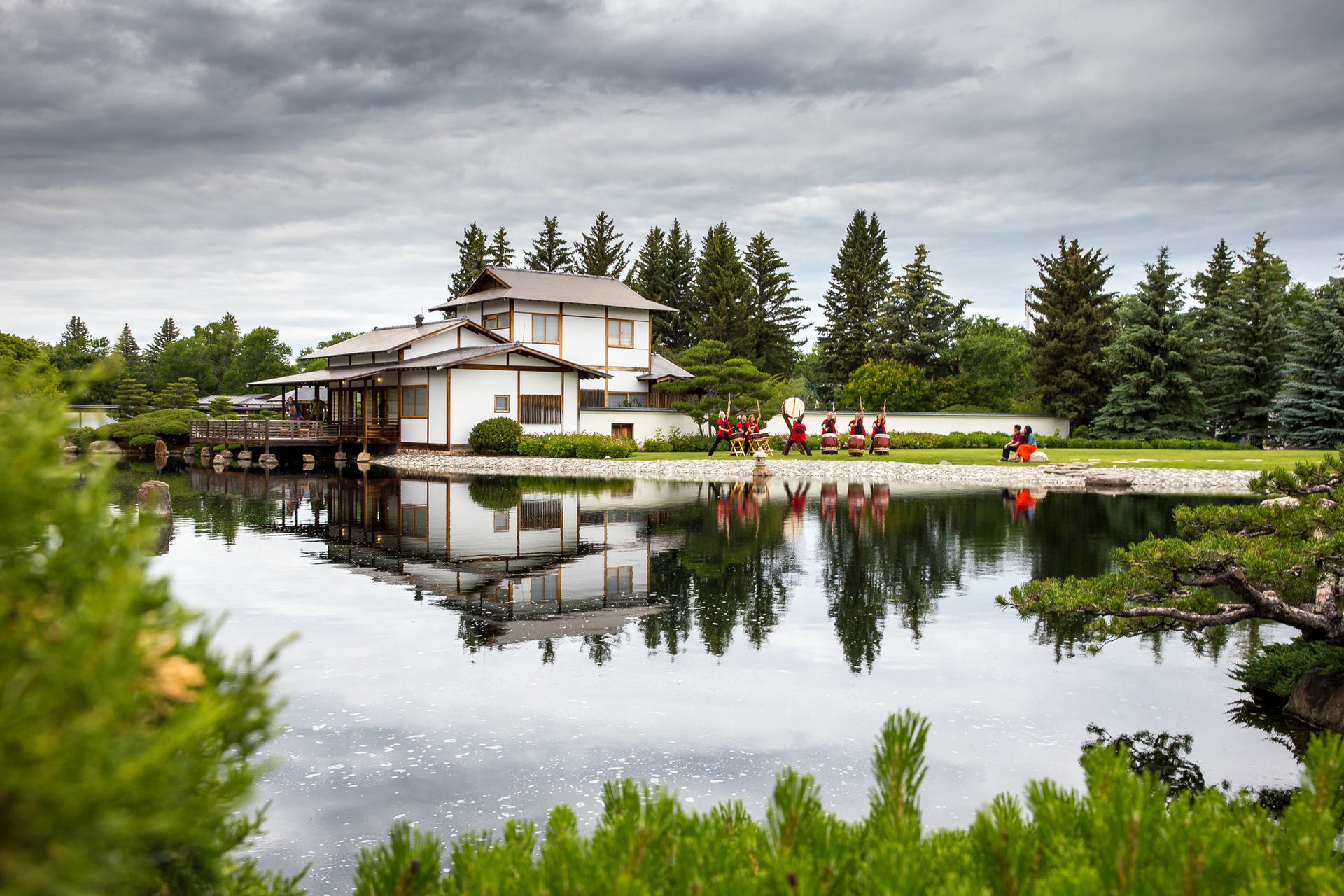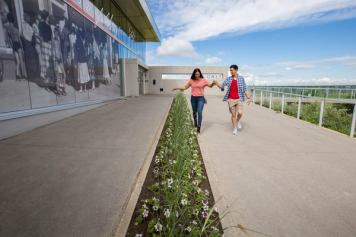The Nikka Yuko Japanese Garden in Lethbridge offers visitors peace, serenity and an opportunity to immerse themselves in Japanese culture. Surveying the garden dressed in a traditional yukata (a lightweight casual kimono), you may feel like you've been magically transported to Japan. Expect that feeling to grow stronger the longer you stay and participate in the garden's cultural activities.
Nikka Yuko Japanese Garden is one of Canada's most distinctive gardens. It's something that, at first glance, you wouldn't expect in the Canadian prairies. "It's a Canadian garden done in a Japanese style," explains Melanie Fast, marketing and events manager at Nikka Yuko Japanese Garden. "The garden contains plants that are local to the area, but they're arranged in a Japanese design."
Why a Japanese garden was built in Lethbridge
The tranquil 1.6-hectare Nikka Yuko Japanese Garden was first opened in 1967 to celebrate Canada's centennial. But that wasn't the only reason for its construction.
Many of Japanese ancestry built up Alberta's infrastructure and contributed to the development of the City of Lethbridge. After World War II, Southern Alberta had the third-largest Japanese Canadian population in Canada. The gardens were built to honour these citizens.
The gardens were also created as a symbol of friendship between Canada and Japan. The name Nikka is a combination of two Japanese words: Ni (from "Nihon," meaning Japan) and ka (from "Kanada," or Canada). Yuko translates to "friendship" and refers to the friendship between Japan and Canada. That friendship is evidenced by the Canada-Japan sister and friendship cities program. Sixteen communities in Alberta have sister cities in Japan. The objective of establishing sister-city status is to promote friendship, education and tourism. Lethbridge is paired with Towada City in the Aomori Prefecture of Japan.






